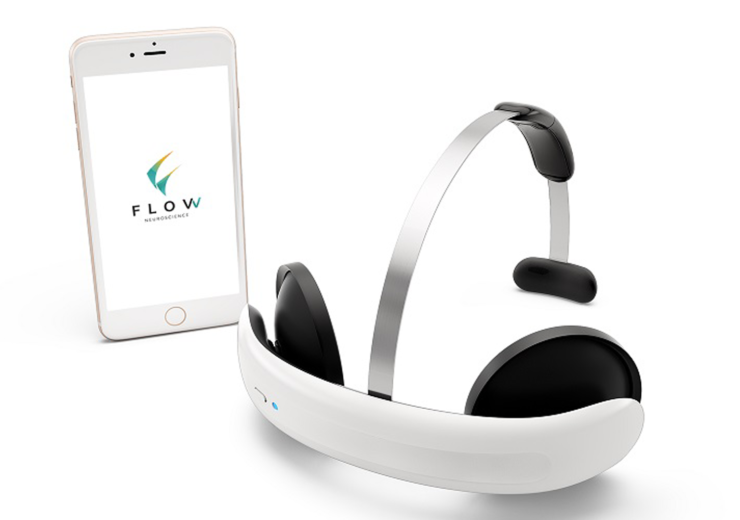The Flow app also comes with an optional neurostimulation device that influences brain activity using electrodes

Flow produces a brain-stimulation headset alongside its free smartphone app, which could be available on prescription in the UK in the future (Credit: Flow)
Seeking help for depression is never an easy task – but the creator of a new virtual therapist app promises to make life “way easier”.
Clinical psychologist Daniel Mansson says Flow can remove some of the obstacles associated with seeking help for mental health problems.
The AI-powered chatbot enables people to talk about how they’re feeling and learn self-help techniques for dealing with depression through daily conversations with a therapist bot and by completing exercises.
It also comes with an optional brain-stimulation headset that influences brain activity using electrodes.
Mr Mansson, who founded the Swedish start-up in 2016 and released the app earlier this year, said: “It’s way easier than talking to a therapist because it can be difficult for people to have a conversation with someone about depression.”
What is the Flow depression app?
Flow’s users – of which there are currently about 4,000 – have access to a chatbot offering daily conversations, as well as advice on how to combat depression.
This could be anything from explaining what depression actually is, to dietary changes which improve mental health problems, to mindfulness and other meditation techniques.
In total, the app offers 18 sessions over the course of six weeks, as well as the AI chatbot being available for users to speak to around the clock.
It also includes mood-tracking technology, which is used to collect data on the user and offer a more personalised response to their problems.

While Mansson admitted Flow users will lose the “personal aspect you get from speaking to a real therapist”, he said the AI chatbot uses an approach grounded in science and using the expertise of clinical psychologists.
It teaches users about how sleep, exercise, nutrition and meditation are the four pillars of treating depression.
Mansson believes providing information is “one of the most important things you can do to treat depression”.
He added: “Basically, we know it can be hard for people to talk about their emotions, so we’re just trying to give them the most basic information they need to know about depression.
“We’ve researched this extremely well, and this is one of the most important things you can do to treat depression.”
This differs from cognitive behavioural therapy (CBT) – the method traditionally favoured by most therapists, and by other mental health chatbots like Woebot and Wysa.
CBT is based around the idea that people’s thoughts, actions and feelings are all directly connected, and more positive thinking will therefore alleviate depression by changing the way the individual feels.
In order to fully achieve its goal of reducing clinical depression however, Flow says its app should be combined with a neurostimulation headset.
Brain-stimulation headset: The medical device Flow wants to bring to the NHS alongside depression app
Although the virtual therapist app is free, users can also pay for a brain-stimulation headset developed by Flow, .
The headset uses a non-invasive form of neurostimulation – a process used to redress the imbalance in brain activity that is thought to cause depression and other mental health problems.
The specific type of brain-stimulation used by Flow’s battery-powered headset is called transcranial direct current stimulation (tDCS).
In this process, a constant, low electrical current is transmitted to the part of the frontal lobe that controls emotional expression, which stimulates neurons to help rebalance brain activity.
Flow believes the combination of the app and headset maximises chances of recovery, and claims this is Europe’s first and only medically-approved, at-home depression treatment of its kind.
While the headset is already available online for £399 ($488), Flow is working towards making the brain-stimulation device available on prescription for people living with depression in the UK via the NHS.
Flow says the headset provides an alternative to antidepressant drugs, having approximately the same effect in treating depression, but with fewer and less severe side effects.
Mansson – who will also look into introducing the ability to call a real therapist on the app in future – said the process of making it an NHS prescription has only recently begun, however, and is at least a year away from approval.
He added: “Right now, we are at a very good level. The app includes all the things you need in order to reduce depression.”
